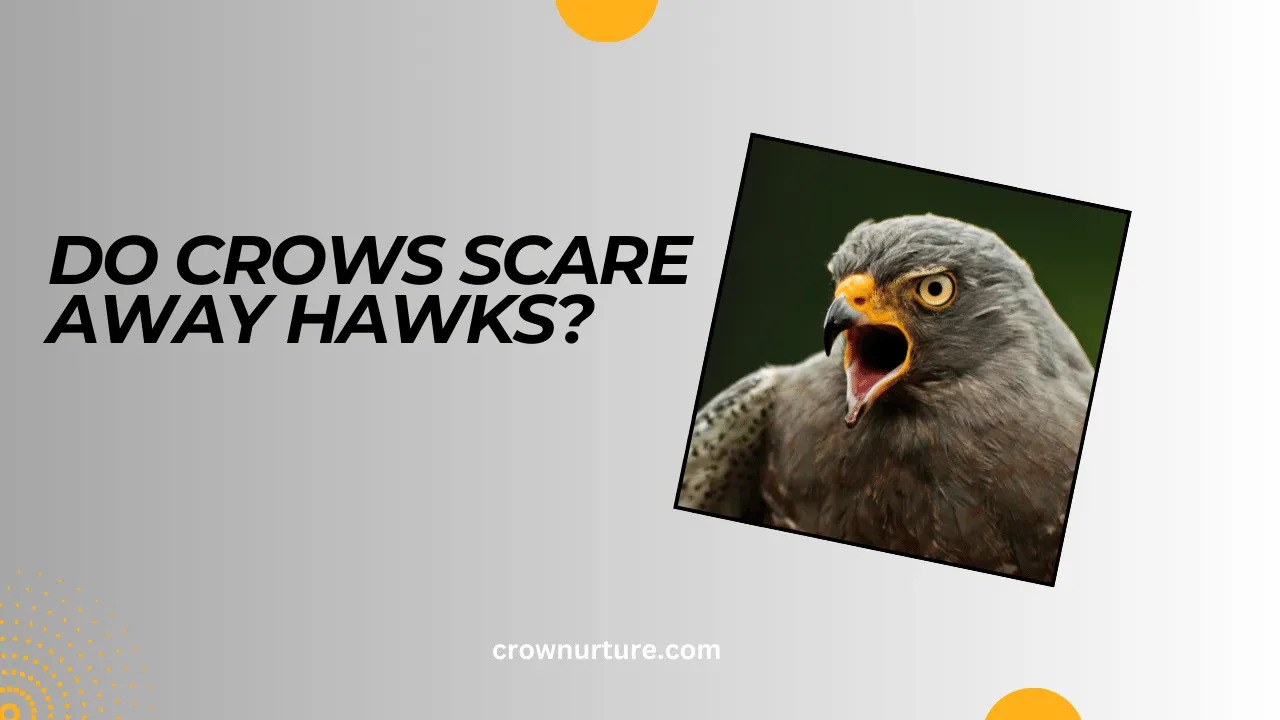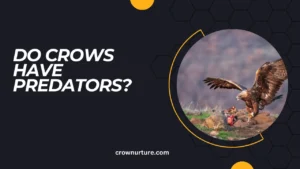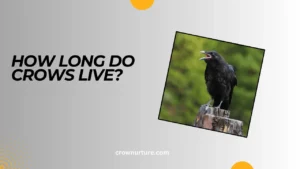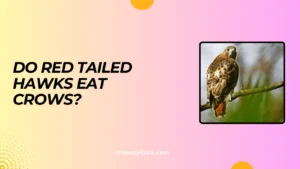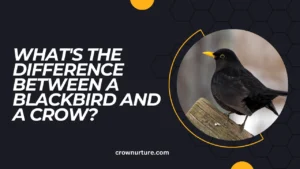Crows are often hailed as some of the most intelligent and resourceful birds in the animal kingdom. Known for their problem-solving abilities and social behaviors, these birds are far more than just clever scavengers.
One of the more intriguing questions surrounding crows is whether they can scare away larger predators, particularly hawks. This question is not just about bird-on-bird aggression; it touches on the very survival strategies that shape the behavior of these fascinating creatures.
As predators and prey, crows and hawks find themselves in a delicate dance, and the tactics employed by crows to fend off these formidable predators highlight the complexity of the natural world.
In this article, we will dive into the behavior and social structure of crows, the predatory nature of hawks, and the strategies crows use to defend themselves. We’ll also explore how these tactics impact their survival and the broader ecological balance.
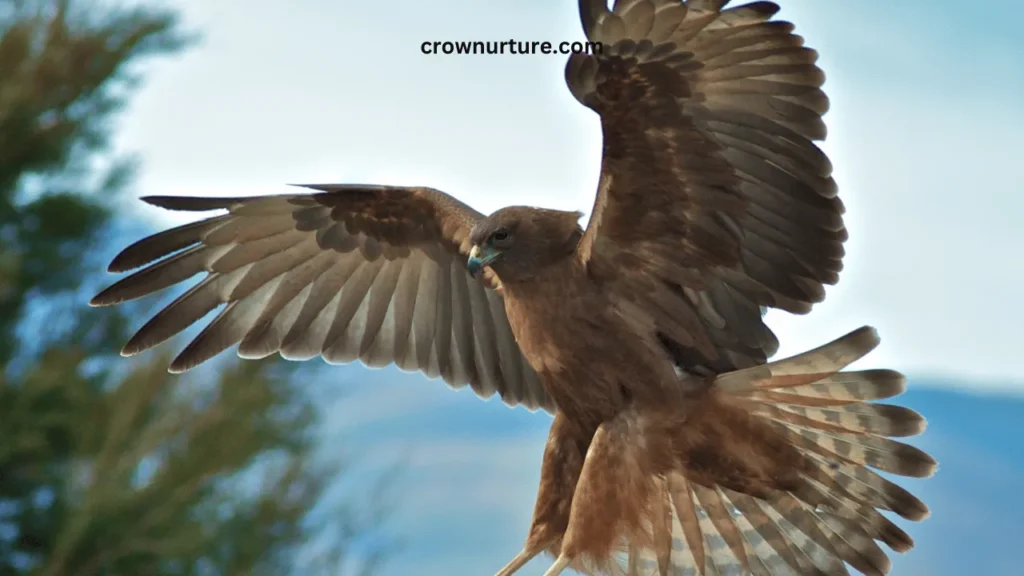
Contents
- 1 1. Crow Behavior and Social Structure
- 2 2. Hawk Predation on Crows
- 3 3. Crow Tactics to Deter Hawks
- 4 4. The Effectiveness of Crow Deterrence
- 5 5. The Ecological Implications
- 6 Conclusion
- 7 FAQs
- 7.1 1. Do crows really scare away hawks?
- 7.2 2. How do crows communicate danger to each other?
- 7.3 3. Can hawks successfully prey on crows?
- 7.4 4. Do crows have any other strategies to avoid predators?
- 7.5 5. How can I attract or deter crows from my garden?
- 7.6 6. What role do hawks play in the ecosystem?
1. Crow Behavior and Social Structure
Crows are known for their complex social systems. They live in family groups or larger communal roosts, and this social structure allows them to coordinate and defend their territories effectively.
One remarkable aspect of crow behavior is cooperative breeding, where multiple crows share the responsibility of raising offspring and protecting the group. This close-knit family unit often contributes to their survival against predators.
When confronted by threats, crows often engage in mobbing behavior—a tactic in which they aggressively attack or harass predators, including hawks. This behavior is essential for deterring threats and maintaining the safety of their group.
2. Hawk Predation on Crows
Hawks are skilled predators, employing hunting strategies such as surprise attacks, swift aerial pursuits, and ambush tactics. They are capable of taking down crows, especially if the crows are caught isolated or alone.
Crows are particularly vulnerable to hawks when they are not in groups. In a solitary state, a crow’s defense mechanisms are weaker, and it becomes an easy target for the more aggressive hawk.
Habitat and food availability also play a role in the vulnerability of crows. In areas with less cover or abundant hawk populations, the risk of predation increases, making it more difficult for crows to escape.
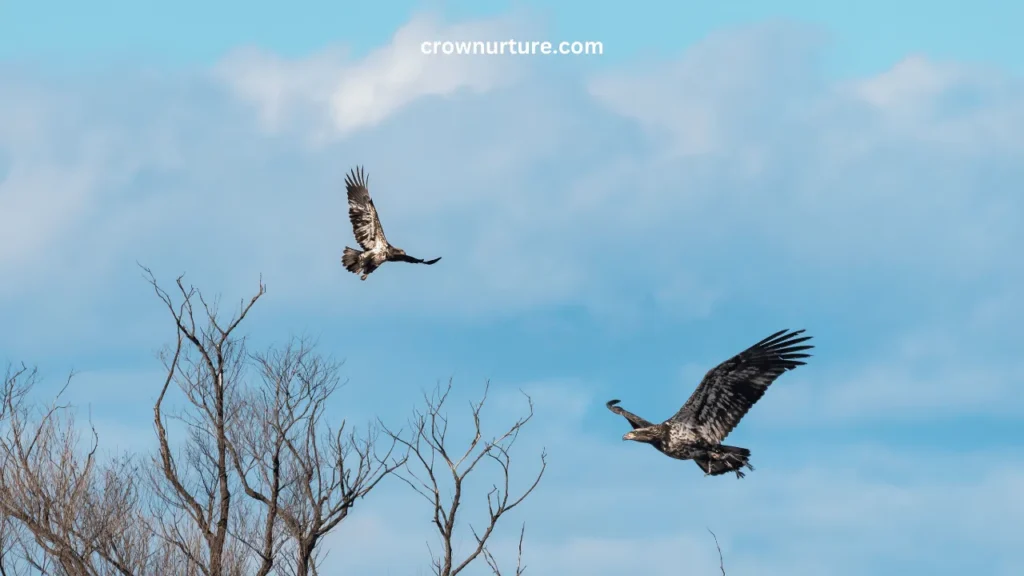
3. Crow Tactics to Deter Hawks
To fend off hawks, crows employ a variety of tactics. The most prominent of these is mobbing behavior, where a group of crows will swarm around a hawk, dive-bombing it to force it to flee. This behavior is highly effective when the crows work together as a unified force.
In addition to mobbing, crows often use distraction tactics, drawing the hawk’s attention away from their nests or vulnerable group members. By making noise and creating confusion, crows make it difficult for hawks to focus on their prey.
Crows also rely on alarm calls to warn others in the area of a hawk’s presence. These calls are distinct and help rally other crows to join in the defense or seek cover.
4. The Effectiveness of Crow Deterrence
Crows can successfully deter hawks, especially when they work together in large groups. Case studies have shown that mobbing can drive hawks away, particularly when the group size is large and coordinated.
The success of these tactics depends on several factors, including the boldness of the individual crows, the number of crows involved, and the structure of the habitat. For example, crows are more likely to succeed in forested areas with plenty of cover, where they can launch surprise attacks.
However, crows are not invincible. Persistent hawks that are skilled at hunting or able to outmaneuver the mobbing crows can sometimes still succeed. This shows that while crows are capable of deterring hawks, their defense mechanisms have limitations.
5. The Ecological Implications
The interactions between crows and hawks play an important role in maintaining a balance in the ecosystem. While crows can scare off hawks, they cannot completely eliminate their presence. Hawks continue to hunt and play a key role in controlling smaller animal populations.
At the same time, crows’ ability to deter hawks helps them survive and maintain their populations, contributing to a balanced predator-prey relationship. Human intervention, such as habitat alterations and feeding practices, can also influence the balance between these two species.
Understanding these dynamics is crucial for appreciating how different species interact and adapt to shared environments.
Conclusion
Crows are intelligent, social creatures that have developed impressive strategies to defend themselves from predators like hawks. Their mobbing behavior, alarm calls, and distraction tactics can often scare away hawks and protect their territories.
However, these tactics are not always foolproof, and hawks, as skilled predators, still pose a threat to crows, especially when they are isolated.
The relationship between crows and hawks is a fascinating example of how animals use intelligence, cooperation, and adaptability to survive in complex ecosystems.
By studying these interactions, we can gain a deeper understanding of the delicate balance between predator and prey and the importance of each species in maintaining that balance.
FAQs
1. Do crows really scare away hawks?
Yes, crows often successfully deter hawks using mobbing behavior, alarm calls, and distraction tactics.
2. How do crows communicate danger to each other?
Crows use alarm calls to alert others of a predator, signaling that they need to either defend themselves or flee.
3. Can hawks successfully prey on crows?
Yes, hawks can prey on crows, particularly when the crows are isolated or weakened.
4. Do crows have any other strategies to avoid predators?
Besides mobbing, crows may hide in dense vegetation or seek refuge in areas with plenty of cover.
5. How can I attract or deter crows from my garden?
To attract crows, offer seeds or suet. To deter them, use scare tactics such as reflective surfaces or predator decoys.
6. What role do hawks play in the ecosystem?
Hawks are important predators that help control populations of smaller animals, maintaining ecological balance.

